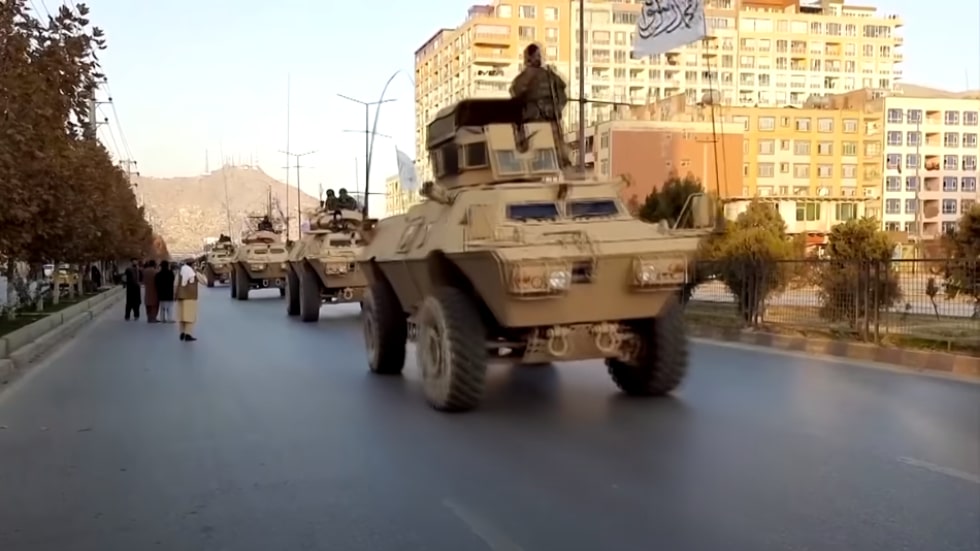When the last American soldier left Kabul in August, the US left behind $7 billion in military equipment it had given to the Afghan Army, more than one-third of all the gear donated over 16 years.
“More than 300,000 of the total 427,300 weapons the US gave to Afghan forces remained in Afghanistan at the time of the US military withdrawal,” CNN reported on Wednesday, citing a Pentagon document it was authorized to view, but not publish.
The deserted weapons include nearly $1 billion in aircraft, almost 10,000 air-to-surface munitions worth some $6.5 million, 40,000 vehicles and 17,500 “pieces of explosive detection, electronic countermeasure, disposal and personal protective equipment.”
It’s unclear what aircraft were abandoned, though the Defense Department document said 78 were left at Hamid Karzai International Airport in the Afghan capital. All were “demilitarized and rendered inoperable” before the US withdrawal.
“Nearly all” of the night vision, communications equipment and biometric technology procured for local forces was left behind, or around 42,000 pieces of specialized gear, the report continued.
Moreover, some equipment intended for the now-defunct Afghan Army has made its way to Ukraine. Five Mi-17 helicopters were in Ukraine for “overhaul maintenance” when the Taliban assumed control over Afghanistan. On March 11, the helicopters were officially placed under the control of Kiev. In a recent weapons package, the White House announced it would send additional Mi-17s to Ukraine.
In addition to the helicopters, Washington has also delivered millions of rounds of ammunition, 119,000 high-explosive mortar rounds, 99,000 fragmentation grenade cartridges and 37,000 artillery shells to Kiev – all initially procured for Afghanistan but never shipped to the country.
The Pentagon said it has no plans to retrieve or destroy the equipment. It remains unclear where it will ultimately end up, though the report noted that most of the gear requires “specialized maintenance that DoD contractors previously provided” to Afghan forces, suggesting some may not be operable without that “technical knowledge and support.”





























